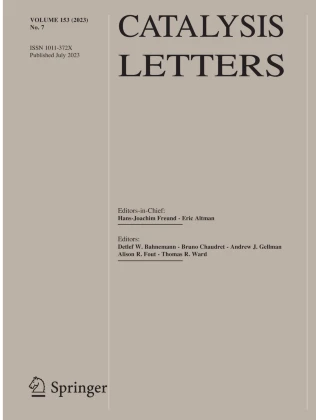Controllable Encapsulation of Highly Dispersed Pt Clusters in Beta Zeolites
Abstract
Metal clusters encapsulated within zeolites are widely utilized in various catalytic processes due to their high metal dispersion and excellent stability. However, the limited and uncontrollable encapsulation of metal content poses significant challenges for further development. To address this issue, this study introduces Sn2+ into the framework of Beta zeolite to achieve controlled encapsulation of Pt clusters. Multiple characterizations reveal that the Sn species occupy some of the silanol sites or substitute framework Al³⁺ species within the Beta zeolite, predominantly existing in the form of Sn-O-Si. These framework Sn species effectively stabilize the Pt clusters, thereby not only enhancing the dispersion of Pt clusters but also increasing the encapsulation capacity of the Beta zeolite for Pt clusters. By adjusting the amount of Sn added, precise control over the content of encapsulated Pt species in the Beta zeolite can be achieved. Both excessive and insufficient amounts of Sn are detrimental to the encapsulation of Pt clusters, with the optimal encapsulation effect observed when the Pt to Sn ratio is 1:2. This synthesis strategy has been successfully extended to the preparation of Pt clusters encapsulated in Beta zeolite without Al addition. The prepared catalyst demonstrates excellent catalytic activity and remarkable stability in propane dehydrogenation. These findings provide valuable theoretical insights for the design and development of the zeolite-encapsulated metal cluster catalysts.
Graphical Abstract
The controllable encapsulation of Pt clusters within Beta zeolites was achieved by controlling the incorporation of Sn species into the Beta zeolite framework

 求助内容:
求助内容: 应助结果提醒方式:
应助结果提醒方式:


